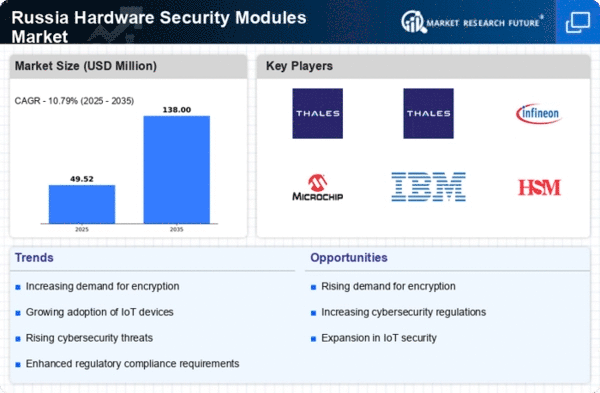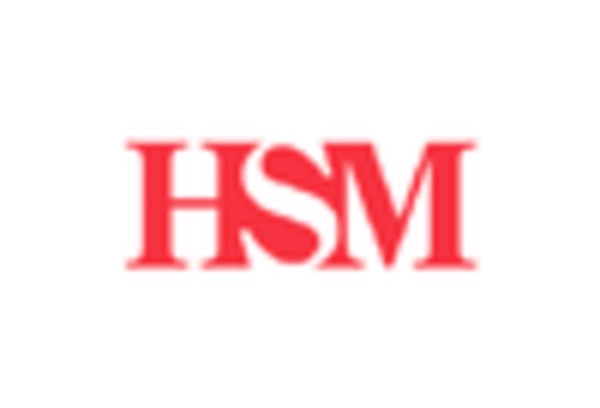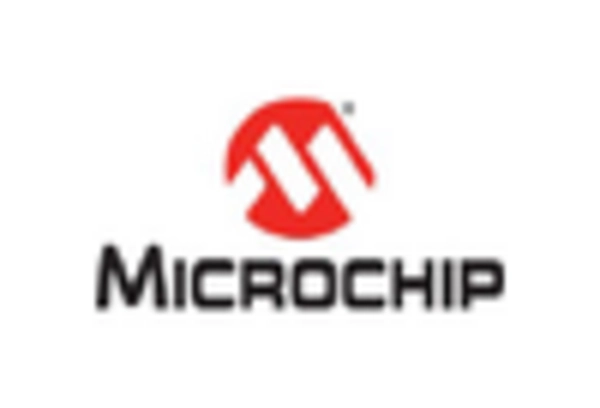Growing Adoption of IoT Devices
The proliferation of Internet of Things (IoT) devices in Russia is a key driver for the hardware security-modules market. As more devices become interconnected, the potential for security vulnerabilities increases, necessitating the integration of hardware security modules to protect data integrity and privacy. In 2025, it is estimated that the number of IoT devices in Russia will exceed 1 billion, creating a substantial demand for security solutions. This trend suggests that manufacturers and service providers will increasingly rely on hardware security modules to ensure secure communication and data storage, thereby bolstering market growth.
Increased Cybersecurity Threats
The hardware security-modules market is experiencing growth due to the rising frequency and sophistication of cyber threats in Russia. As organizations face increasing risks from data breaches and cyberattacks, the demand for robust security solutions is paramount. In 2025, it is estimated that cybercrime could cost the Russian economy over $1 billion, prompting businesses to invest in hardware security modules to safeguard sensitive information. This trend indicates a shift towards proactive security measures, as companies seek to protect their assets and maintain customer trust. The hardware security-modules market is thus positioned to benefit from this heightened awareness and urgency surrounding cybersecurity.
Rising Awareness of Data Privacy
There is a growing awareness of data privacy among consumers and businesses in Russia, which is influencing the hardware security-modules market. As individuals become more informed about their rights and the importance of data protection, organizations are compelled to adopt stringent security measures. Surveys indicate that over 70% of Russian consumers express concerns about data privacy, prompting companies to invest in hardware security modules to comply with emerging standards and expectations. This heightened awareness is likely to drive demand for advanced security solutions, positioning the hardware security-modules market for continued expansion.
Government Initiatives for Digital Security
The Russian government is actively promoting initiatives aimed at enhancing digital security, which significantly impacts the hardware security-modules market. With the implementation of various national strategies, including the Digital Economy program, there is a clear focus on improving cybersecurity infrastructure. By 2025, government investments in cybersecurity are projected to reach approximately $500 million, fostering an environment conducive to the adoption of hardware security modules. These initiatives not only encourage private sector participation but also create a regulatory framework that mandates the use of advanced security technologies, thereby driving market growth.
Increased Investment in Financial Technologies
The financial sector in Russia is witnessing a surge in investment in financial technologies, which is significantly impacting the hardware security-modules market. As banks and fintech companies strive to enhance their digital offerings, the need for secure transaction processing and data protection becomes critical. By 2025, investments in fintech are projected to reach $1 billion, leading to a greater reliance on hardware security modules to ensure secure operations. This trend indicates that the hardware security-modules market will play a vital role in supporting the secure growth of financial technologies in Russia.















